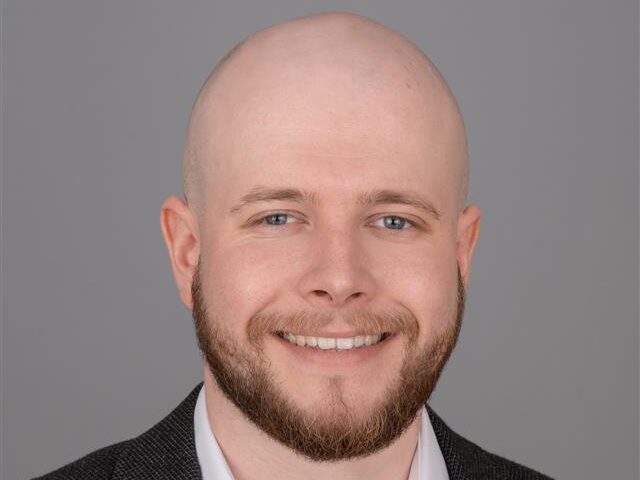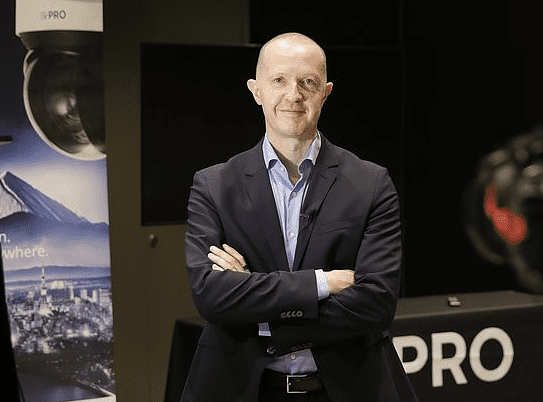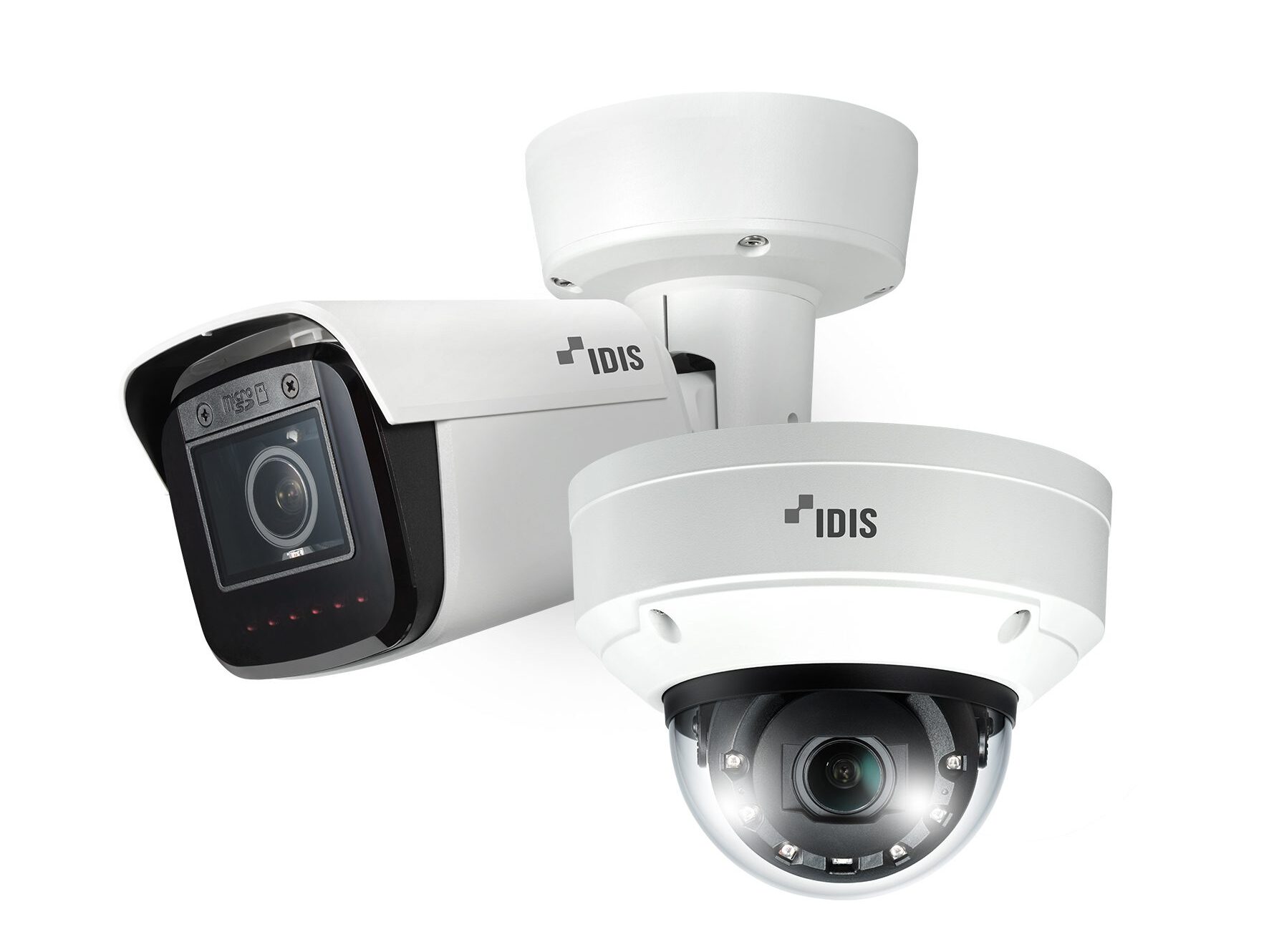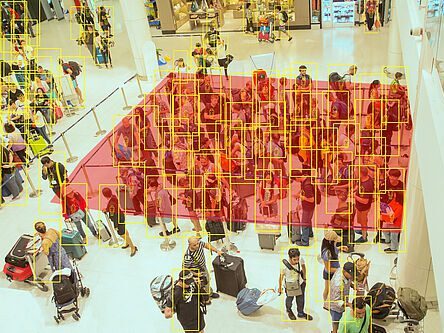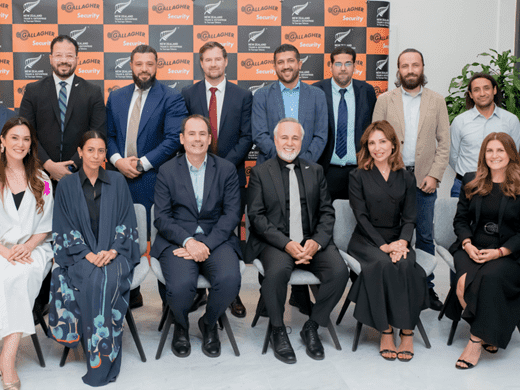
The CCTV industry in the UK has a new commissioner. After nearly four years with Andrew Rennison at the helm of the government’s experiment in light-touch regulation, it’s time to welcome a new captain – Tony Porter QPM LLB.
Tony Porter has spent most of his career in policing, often running highly sensitive and secret operations to do with national security. He comes into the office of Surveillance Camera Commissioner promising that he can promote the principles of transparency and openness which are enshrined in the Protection of Freedoms Act 2012.He says he will guide and support the CCTV industry but he will also go out of his way to give a voice to those who would oppose the use of surveillance cameras to help enhance security.
And perhaps most challenging of all, he is prepared to measure his success by how effective he is in getting organisations to adopt and adhere to the Commissioner’s code of practice, despite having no enforcement powers whatsoever.
With the slogan “Encouraging, reviewing, advising”, it’s clear that the Surveillance Camera Commissioner isn’t going to strong arm anyone into complying with the code.
Why would anyone want a job that makes you a focus for criticism and yet gives you virtually no power to do anything about it? We sat down with Tony Porter to find out.
Career
Porter started his career in the police in 1982, serving communities in Stockport, Manchester and Oldham in a variety of roles. He gained his first command in 1996 in the Moss Side inner city district within Manchester. This was followed by an appointment as head of CID for south Manchester in 1998, a role that saw him lead several high-profile gang-related homicide investigations and major crime enquiries as well as provide advice to the force and divisional command on crime reduction.
Upon promotion to Chief Superintendent, he took strategic responsibility for community policing across Greater Manchester. He led the force in issues as broad as developing community engagement strategies, initiating Independent Advisory Group policy, Crime Prevention and Diversity Strategies.
In 2003 he was appointed Head of Special Branch (GMP) and subsequently became Head of Profession (Special Branch) in the North West Region before commanding the North West Counter Terrorism Unit from 2006 to 2012. In 2008 he was awarded the Queen’s Police Medal in the New Year’s Honours list for distinguished service to policing.
In June 2012 Tony was promoted to T/Assistant Chief Constable and performed the role of National Co-ordinator (Pursue) throughout the duration of the London Olympics. This role entailed responsibility for the management, supervision and direction of all CT investigations throughout the Games.
Following the Olympic Games, he had the opportunity to stay at New Scotland Yard but says he had already been offered a position at Barclays Bank as head of intelligence. “The reason I took it was because I had effectively done law enforcement. I had been at the top of the game and I didn’t think there was a great deal more to achieve,” he says. “The challenge of working at Barclays was a new one, in the private sector, with completely new pressures and I wanted to sample it and see what it was like.”
He says the experience was “interesting” but it would only be 18 months before he left to become Surveillance Camera Commissioner. “I had enjoyed working in the private sector, but you could never imagine the possibility of making an impact in the way you can in this role,” he says.
“Having had a look at the position [when it was advertised], I felt there was a real job to be done, a difficult job, a job where I could make a difference in a number of sectors, the public sector primarily,” he says.
He was motivated by “the sense in society that surveillance is an important issue to them and also the opportunity to make a difference, to influence government and have an impact, hopefully a positive and benign impact, on society”.
He has a limited interest in politics itself but follows current affairs assiduously. “I have an interest in the way politics plays out,” he says. “But in terms of politics with a capital P, being aligned to a political party, that’s never an area I have really aligned with.”
However, that’s not to say he has never influenced public policy, he says, pointing to something called the counter terrorism local profile with some pride.
“When the new UK counter-terrorism structure began to form around 2005 and 2006, I had been working on national security for several years and had started to develop a process to enable law enforcement, particularly the more covert elements, to reach out to communities and local authorities and transfer information that would enable authorities such as health and education to protect themselves from extremism,” he says.
“I designed it from an idea that I had been formulating from policing work I had done for ten years in a particular area,” he says. “I implemented it in the northwest, it was accepted by HM Inspectorate of Constabulary and then the government and it became part of the government’s CONTEST strategy, and is part of the PREVENT strategy.”
He points to his success in this area as evidence of his commitment to openness and transparency. “If you ask yourself, how do you move secret and sensitive and covert national intelligence into the public arena, it’s very difficult. It had hitherto been a case of we can’t do it,. but we did do it because it’s important,” he says. “So that was one policy where I was quite proud of the impact of myself and the team in terms of influencing the direction of government strategy.”
Commissioner Porter was attracted to the position because, he says, “it’s unique” and he is looking forward to influencing the direction of surveillance in public areas. “I was attracted to the fact that it is not a static issue,” he says.
The agenda in CCTV is changing fast, he says, with the introduction of new technology that is constantly pushing the boundaries of what can be done with video surveillance and challenging what the public will accept. “How do you respond to new and emerging technology, what are the issues for the public and community who want reassurance that technology is not getting out of hand, that their personal space is not being invaded unnecessarily? You only need to look at facial recognition, video analytics and all the whizzy tech stuff that can go on the back of CCTV to start asking yourself challenging questions.”
And his role in all of this? “The public, the community have a right to have somebody operating on their behalf who is an antidote to the unfettered surveillance society,” he says.
As evidence of his professional commitment to openness, he points again to his work on the counter terrorism local profile and his track record of openness and accountability at a local level in his role as police commander in Manchester.
“I was very upfront in terms of holding myself to account to communities, whether it had been communities that had been impacted by operations we had run, whether they were representatives of particular faith communities that felt impact, or extremism communities, life was a lot easier if you went out and spoke to people,” he says. “That’s not to say there wasn’t covert acquisition of information and intelligence, but that was done under the Regulation of Investigatory Powers Act, it was done lawfully, and it was done for the public good as evidenced by the arrests and prosecutions.”
The Commissioner’s role is to recognise that surveillance by consent – a concept pioneered by the previous Commissioner, Andrew Rennison – is only valid as long as the public have a conduit through which to say that certain practices are unacceptable.
On the subject of practices that the public has objected to, I ask him for his view on Project Champion, the ill-fated surveillance project which covered certain communities on the east side of Birmingham.
He hesitates for a moment before describing Project Champion as “ill conceived”.
“I don’t know why it was brought about the way it was,” he says. “I am a great believer that if you are going to impact on a community then the first principle is to consult and engage with the community. I think there are those who know more about Project Champion than I do, where it went off the rails, but I do think that the overarching principle is transparency.”
If the Commissioner were to look into Project Champion, would he make his findings public? His answer is noncommittal. “That’s a difficult question. There may be elements of Project Champion that would prevent it from going public,” he says. “My understanding is that a very full and rigorous review of the learning has been distilled and much of that learning has moved towards the codes of practice, the establishment of the Commissioner and the recognition that the guiding principles of openness and transparency are paramount.”
Contrary views
So what does the Commissioner hope to accomplish during his three-year term of office?
Continuing the work begun by the first Surveillance Camera Commissioner, Andrew Rennison, is the starting point, he says. Rennison laid down a direction of travel, created the SCC’s team and formed crucial relationships with the Information Commission and Surveillance Commissioner who have responsibility for CCTV-related issues. “Andrew has been responsible for working with the team and delivering all of that, so I’m indebted to him,” he says.
The Protection of Freedoms Act talks about only a small number of authorities who are directed to have regard to the SCC’s code of practice, while expressing a desire that a far greater number of organisations will voluntarily opt in to the code.
He concedes that this will be a challenge. “I would like to see after three years, as evidence of success, the adherence of the relevant authorities to the code itself but also I would like to be able to demonstrate how the greater swathe of organisations have voluntarily adopted the code without the government necessarily having to legislate,” he says.
However, while encouraging organisations to adopt the code, he will also be encouraging those who are opposed to video surveillance to use his office as a sounding board for their opposition.
“If you look at any statistics, they show broad support for CCTV,” he says. “I cherish very much the right in this country to freedom and a sense of freedom. I intend to, from the start, give a voice to those who have contrary views, whether they are from lobby groups who would lobby against it as an infraction of liberty, or communities that feel they are unduly impacted by CCTV. It’s a core role to provide assurance that we haven’t sleepwalked into a surveillance society.”
Does he feel that anti-CCTV campaigners don’t get enough of a voice?
“I think it’s important to continue to take a long view and continuously seek to evidence the view that we as a society gain from CCTV, and not take it for granted that the public will always be there [supporting it],” he says.
What about the view that when you are in public you don’t have an expectation of privacy?
Porter believes that the anti-CCTV lobby has a valid point that needs to be examined closely. “It’s state surveillance and they have concerns about how the images are being stored and analysed and how that might impact on their right to privacy,” he says. “As the Surveillance Camera Commissioner, I take those arguments very close to heart and consider it my job to listen to them. I would never treat those comments as frivolous and would never pass judgement on someone who felt that their right to pass anywhere unfettered by surveillance and monitoring is a frivolous or fatuous desire. That’s wrong.”
However, that’s not to say that privacy is an absolute right and if there is a pressing need for CCTV surveillance then “that’s the balance you have to pay in a democratic society”.
To satisfy the CCTV sceptics, how far would Porter be prepared to go in limiting the use of CCTV? He says the answer is in the code of practice. “If there is compliance with the codes, then no operator need have any fear of being regulated out of using CCTV,” he says.
“My role as commissioner it to make sure that pressing need is relevant,” he adds.
New kid
CCTV regulation, such as it has been over the years, has been managed primarily by the Information Commisioner, under the terms of the Data Protection Act, and the Surveillance Commissioner working under the Regulation of Investigatory Powers Act.
With the addition of the Surveillance Camera Commissioner, created by the Protection of Freedoms Act, there are now three commissioners who have a greater or lesser degree of oversight on the industry.
How will the Surveillance Camera Commissioner, as the new kid on the block, work with the other two?
“It’s only my second week in office, so I haven’t met with them yet,” Porter admits with a smile. “I have spoken with the Information Commissioner’s Office.” For the record, he clarifies that it was the Head of Strategic Liaison Jonathan Bamford at the Information Commissioner’s Office with whom he spoke.
“We have a Memorandum of Understanding (MoU) that relates to how we will handle various issues like complaints and reviewing the code of practice,” Porter says. “There are very clearly issues in the SCC code that the Information Commissioner has a high degree of interest in… Where there is overlap, we have agreed that there will be discussion to reach consensus over the best course of action.”
And the Surveillance Commissioner?
“A slightly different bailiwick in that the Surveillance Commissioner works more under RIPA. Covert surveillance, even in public spaces, is highly regulated under the statute with clear lines of responsibility to the Chief Surveillance Commissioner,” he says.

“It’s a massive bone of contention for those who feel they have been impacted by domestic surveillance. At the moment, clearly, my codes of practice don’t provide any oversight or direction for the issue. You will find within the broader statutes across the UK that engagement with the police, consideration of harassment acts and even consideration of civil injunctions for invasion of privacy are probably the best reliefs available at the moment,” he says.
Self assessment
With no powers to enforce the code and a very limited number of staff, how is the Commissioner going to spread the message and help organisations assess their compliance?
“There are ways we intend to progress,” he says. One method he is looking at is a self-assessment scheme which would provide owners, operators and relevant authorities with a very simple guide to compliance.
He is also looking at whether a simple form of accreditation might help draw in organisations that are not currently covered by the SCC’s code of practice, without creating an overburdened process.
“There is a good deal of low-hanging fruit – other organisations that have contact with the public, whether they are transport or education authorities for instance, where a relationship with the public is key to their operation and ability to function,” he says.
He believes that by providing simple advice and guidance, many organisations will reflect on the code and adopt the self-assessment tool, realising myriad benefits to their organisations in doing so.
“I think what will emerge over the next two to three years is a greater understanding of how CCTV can be more effectively deployed, having cost benefits to operators,” he says. “It will definitely have cost benefits for law enforcement because they will be more closely aligned to the end users of the product that comes from CCTV monitoring.”
And he adds: “The nature of the role is not only around supporting effective use of CCTV but also listening to the concerns of the community about its deployment. I do view myself as an independent regulator.
“I listened very carefully to the consultation that came out prior to the Act receiving Royal Assent, and I think there is an energetic piece of work to be done supporting the industry but also ensuring they are held to account in a way that benefits themselves and the public.”
* The Surveillance Camera Commissioner will be speaking at the next CCTV User Group seminar to be held 19-21 May in Daventry. For more details, see Welcome and News or the seminar advertisement on page 19.
12 Guiding Principles of CCTV
The Surveillance Camera Code of Practice states that relevant authorities, as defined by the Protection of Freedoms Act, should adopt the 12 guiding principles, and Porter argues that by adopting them, owners and operators will make their systems more efficient and even save money.
1. Use of a surveillance camera system must always be for a specified purpose which is in pursuit of a legitimate aim and necessary to meet an identified pressing need.
2. The use of a surveillance camera system must take into account its effect on individuals and their privacy, with regular reviews to ensure its use remains justified.
3. There must be as much transparency in the use of a surveillance camera system as possible, including a published contact point for access to information and complaints.
4. There must be clear responsibility and accountability for all surveillance camera system activities including images and information collected, held and used.
5. Clear rules, policies and procedures must be in place before a surveillance camera system is used, and these must be communicated to all who need to comply with them.
6. No more images and information should be stored than that which is strictly required for the stated purpose of a surveillance camera system, and such images and information should be deleted once their purposes have been discharged.
7. Access to retained images and information should be restricted and there must be clearly defined rules on who can gain access and for what purpose such access is granted; the disclosure of images and information should only take place when it is necessary for such a purpose or for law enforcement purposes.
8. Surveillance camera system operators should consider any approved operational, technical and competency standards relevant to a system and its purpose and work to meet and maintain those standards.
9. Surveillance camera system images and information should be subject to appropriate security measures to safeguard against unauthorised access and use.
10. There should be effective review and audit mechanisms to ensure legal requirements, policies and standards are complied with in practice, and regular reports should be published.
11. When the use of a surveillance camera system is in pursuit of a legitimate aim, and there is a pressing need for its use, it should then be used in the most effective way to support public safety and law enforcement with the aim of processing images and information of evidential value.
12. Any information used to support a surveillance camera system which compares against a reference database for matching purposes should be accurate and kept up to date.



















